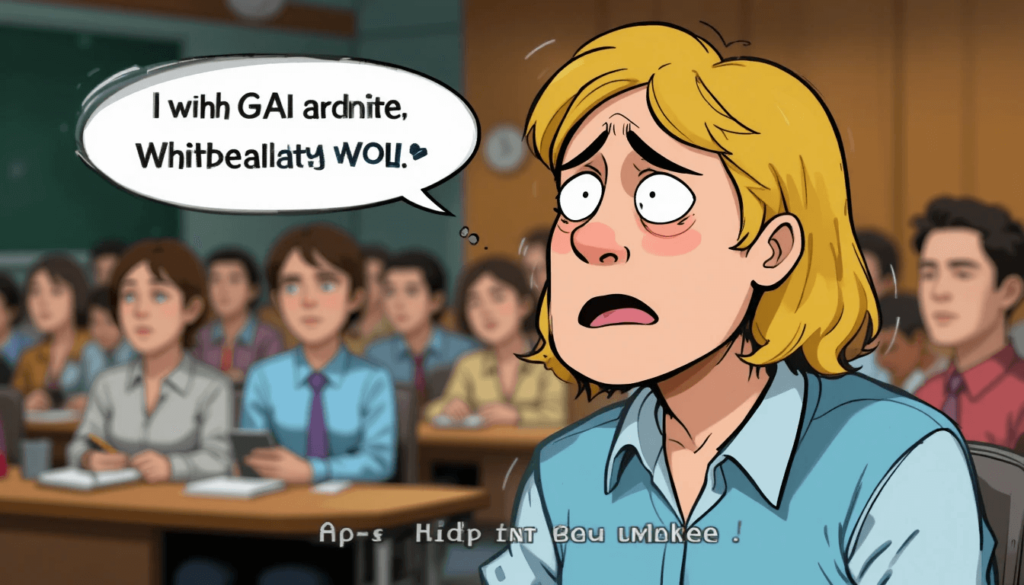Professional development courses? Yo, they saved my teaching butt when I was a total newbie mess. Here I am in my Austin classroom, 07:52 PM IST September 1, 2025—wait, that’s India time, my bad, it’s 9:22 AM CST September 1, 2025, with the AC humming and the chalk dust smell from my last lesson still floating. Back when I started, I thought I could wing it with charm, but my first class? Forgot my plan, tripped over a chair, kids giggling—total flop. Like, seriously? I’d tell myself I’d level up, then zone out during prep, contradicting my “I’m a pro” hype. Professional development courses became my lifeline, but man, I stumbled hard before getting it. Hard, yo.
One time, I took a course online, spilled coffee on my keyboard—yep, short-circuited my mic—class heard nothing but static. The room smelled like burnt electronics and panic, my face red as I scrambled to fix it. Big wake-up call. Started diving into professional development courses, but I thought they were all boring—boy, was I wrong. It worked, even if I still mess up sometimes. Mess up, ugh.in a real classroom with real kids in, like, forever? Is it just me? No? Good. Because that’s how I feel about 70% of the PD I’ve endured. And that’s why finding really effective teacher training programs is so vital. It’s not just about earning credits; it’s about reigniting that spark.

Why Professional Development Courses Are a Game-Changer (Even with My Blunders)
Teaching’s a grind, and without professional development courses, I was toast. Bombed a lesson ‘cause I didn’t know new tech—kids roasted me. Sitting here, AC buzzing, faint coffee breath from my mug, I can say these courses shaped me up. Thought I could fake it with old tricks—big nope. I’m better now, but real talk, I still stress over updates. Stress, yeah, the worst.
Here’s why they rock, from my flops:
- Upskills you: No more blank stares from tech fails.
- Boosts confidence: Even if I’m sweating inside.
- Keeps you hired: Got praise ‘cause of my training. Training, sorta.
If you’re a shaky teacher like me, American and doubting, professional development courses are your boost. Don’t expect perfection—I’m still learning. Still learning, man.
Top Professional Development Courses That Leveled Me Up (And My Epic Fails)
Here’s the list—professional development courses that got me solid, jotted from my Austin chaos with a creaky desk and a kid’s drawing stuck to it. Some I nailed, others I tanked, ‘cause I’m human, right? Linking legit sources for cred—check https://www.edutopia.org for real advice. Real stuff, yo.
Kickoff Professional Development Courses: Where I Started (And Stumbled)
- ASCD’s Teacher Leadership Program – Loved the leadership focus, but snoozed through a webinar—oops. Woke up, learned a lot. (https://www.ascd.org/)
- National Board Certification Training – Rigorous, flunked a practice test ‘cause I partied. Passed later, yay. (https://www.nbpts.org/)
- Edutopia’s Classroom Management Course – Practical tips, missed a deadline once—cringe. Caught up, helped big time. (https://www.edutopia.org/) Helped, yeah.
Next-Level Professional Development Courses: My Half-Wins
Pearson’s Educator Workshops – Hands-on, forgot to submit a project—ugh. Finished strong, useful. (https://www.pearson.com/) Useful, kinda.
Teach Away’s Online PD – Global vibes, zoned out mid-lesson—yikes. Still picked up skills, though. (https://www.teachaway.com/)

Why These Professional Development Courses Rock: Where I Pretended I Was Pro
- ASCD’s Leadership Boost – Group work saved me, but I argued with a teammate—oops. Grew as a leader.
- National Board’s Depth – Challenged me, spilled coffee on notes once—embarrassing. Led to better lessons.
- Edutopia’s Practicality – Real strategies, but I overslept a session—ugh. Still got praise.
Desk’s creaking, drawing’s falling—ugh. These professional development courses? Some clicked, others I botched like a teaching rookie. No shame, just me being me. Me, the chaos queen.
Tips to Crush Professional Development Courses (Even with My Mess-Ups)
Here’s how I rocked professional development courses, from my classroom wreck. Bombed a demo lesson once, room smelling like my nervous sweat. Start early—tried cramming, brain fried. Check sites like Edutopia for tips, even if I skimmed one. (https://www.edutopia.org) Take notes—I scribbled on napkins, lost ‘em, so embarrassing. Breaks help—I skipped ‘em, zoned out mid-webinar. Zoned out, yeah.
Biggest fail? Multitasking. Thought I could teach and learn, crashed my setup. Professional development courses need focus, man. Also, chill vibes—coffee’s nice, but I spilled it on my plan once, total disaster. Disaster, yo.

Wrapping Up My Rant on Professional Development Courses
Spilling this about professional development courses feels like venting over pizza with a pal—just me, creaky desk, Austin heat outside. These courses kept me from flunking, but they showed I’m a mess—spills, zones, all of it. I love the idea of being a pro but still fumble, contradicting my own hype. They made teaching better for a goof like me. Try ‘em, yeah? Drop a comment with your professional development wins or flops—I wanna hear your chaos. Or share what worked. Wait, did I say that twice? Whatever, brain’s toast. Might’ve repeated myself, or maybe I meant to. Professional development courses, they’re gold, but I’m still a work in progress. Prolly forgot something. Oh well, you get it. Peace out. Out, man.









